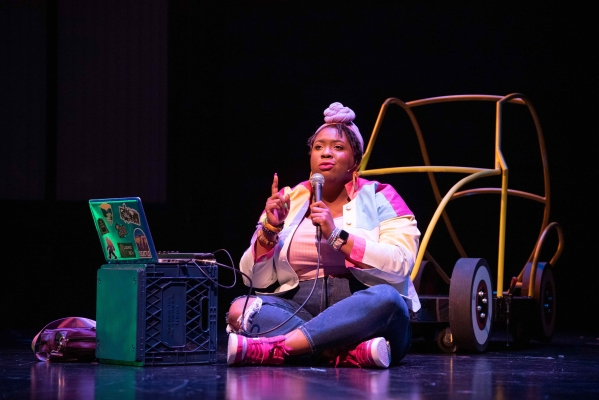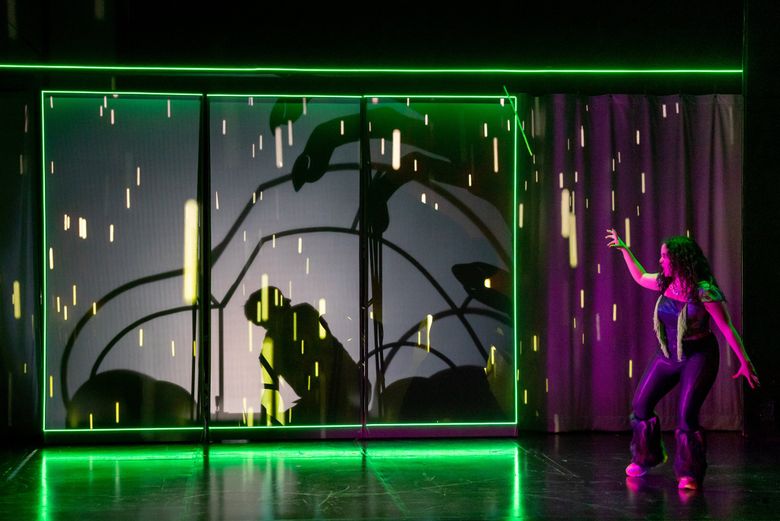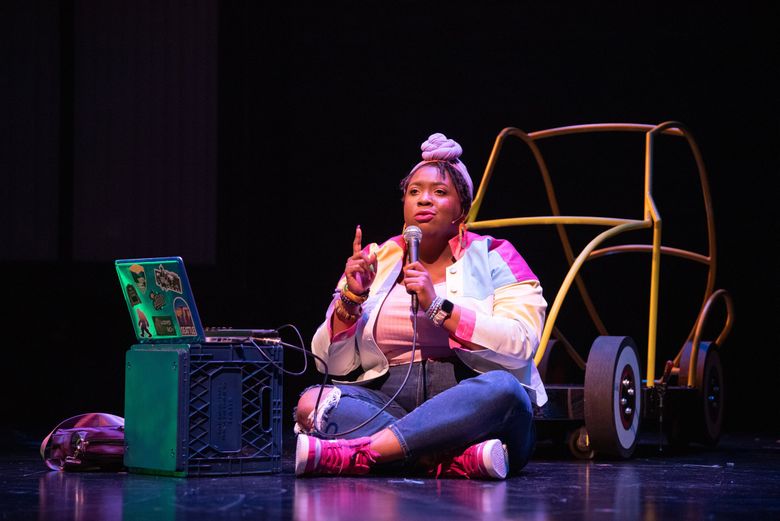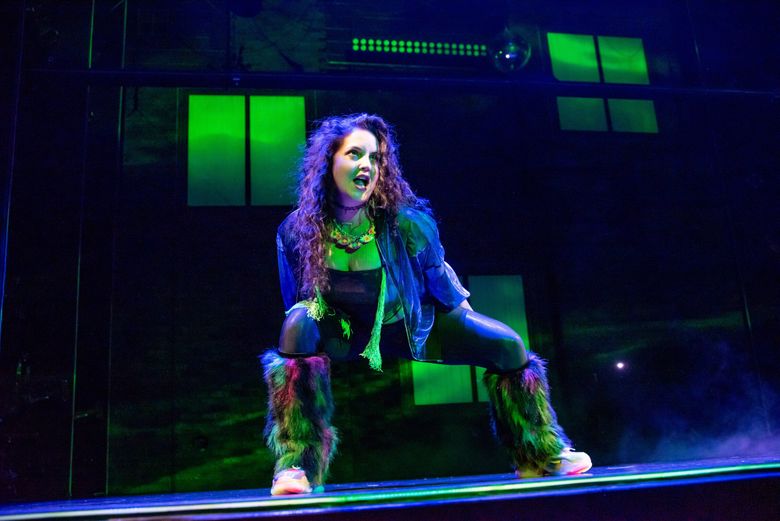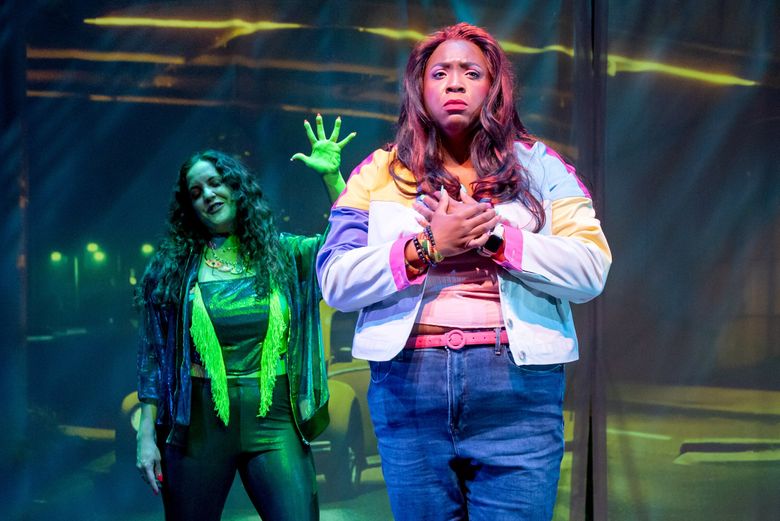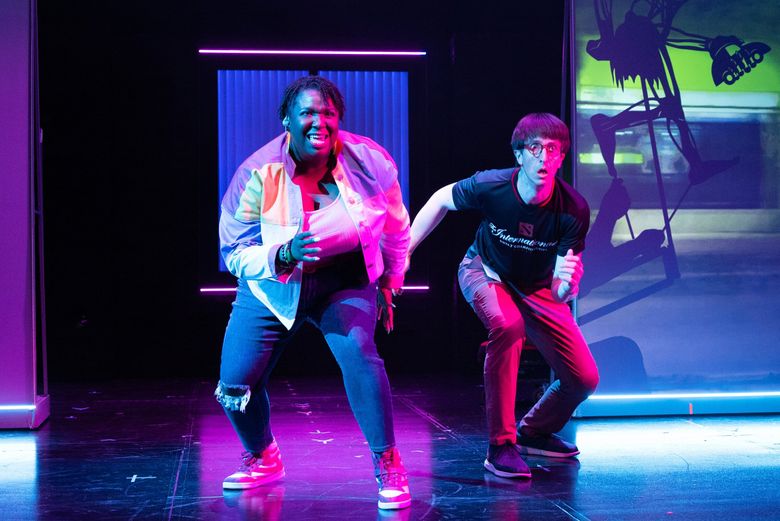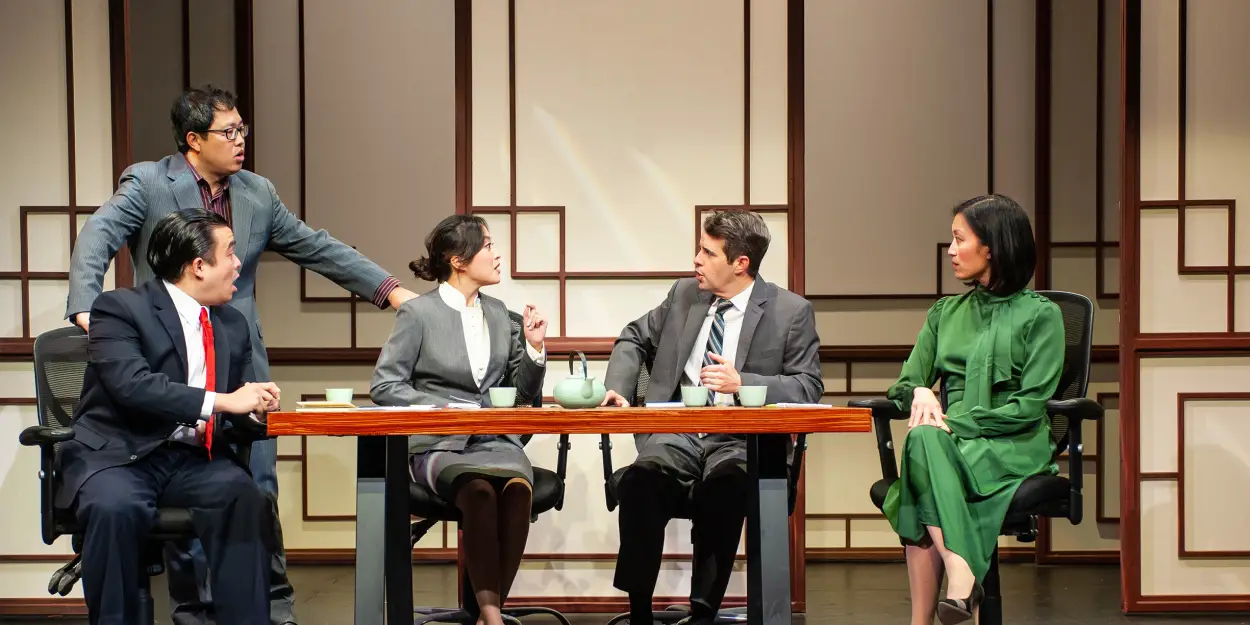By Roxanne Ray – May 18, 2023 – for the IE Examiner

When the International Examiner last checked in with playwright and actor Justin Huertas and composer Steven Tran, they had collaborated on a pre-pandemic musical entitled The Last World Octopus Wrestling Champion and then had worked on a video concept album called Swimming during the lockdowns of COVID-19. Now, the pair is teaming up again to present a World Premiere musical at the Seattle Rep: Lydia and the Troll.
Our lead character Lydia is a singer-songwriter who is dissatisfied with her life, which motivates her to take some new risks, and not necessarily in a good way. “The villainous troll is something that lives inside all of us,” Huertas said. “It’s the voice that tells you that you don’t look good enough, you don’t write well enough, you’re not cool enough.”
And Huertas can relate. “We’re pinpointing that time in Lydia’s life where that voice is at its loudest, which is absolutely something I’ve gone through,” he shared. “The more time that passes and the more distance I have from that time in my own life, the more I understand how I got stuck there and how I pulled myself out.”
Tran also feels a kinship to Lydia. “The protagonist Lydia and I are both music producers, and we both have a deep appreciation and respect for electronic and pop music,” Tran relayed. “Inspired by the multimedia aspects, my vision for the music is to bring studio-quality pop and electronic production to Justin’s songs.”
Of course, since this is Seattle, the troll in the show is not just any troll, but is of course the Fremont Troll. “How many cities can boast a magical, mythical troll living under the interstate?” Huertas mused. “The concept of how that troll got there has been on my mind for years.”
But this time, Huertas and Tran expanded their creative team, to include co-creator and director Ameenah Kaplan. “Ameenah and I met working on a show out at Village Theatre, and I fell in love with her artistry and leadership,” Huertas recounted. “When we were searching for a director for Lydia & the Troll, it truly felt like destiny.”
Tran agreed. “Ameenah is incredibly inspiring as a director, and it’s her multimedia film vision that helped originally inspire my desires for this pop electronic score as well,” the composer said. “The rehearsal room feels vivid and alive, and the art being made is a very cool thing to be a part of.”

Just as important, Kaplan also empathizes with Lydia’s journey. “Ameenah is an incredibly physical director, and a large part of our collaboration has been figuring out the visuals and the physical life of this musical,” Huertas said. “It’s very rare that I have a director as imaginative and collaborative as her, and she’s brought a lot of her own life experiences to Lydia.”
That physicality has dovetailed with Tran’s goal for the music. “I wanted to highlight the kinetic and transformative themes of the script with a score equally as electrifying and modern,” he said. “My vision is to authentically bring the sound of the recording studio to the stage with pre-recorded and mangled background vocals, samples and foley, and hyper-produced electronic tracks, to create a musical tapestry that I am sure will contain sounds and genres that so far have not graced the musical theater stage.”
Working together, the trio has found the development of this new work to be organic. “My experience growing up here as an artist, growing through art, growing through relationships, all of that kind of told me what this story is about,” Huertas said. “I think when people meet Lydia, they’ll see those moments of growth that both Ameenah and I have gone through, and those are the changes we’ll see Lydia experience even as she’s hunted by a troll.”
This evolution is paralleled by Huertas and Tran’s progress as a musical-writing duo. “With each new project, it seems that we are continuing to push our boundaries and grow together as a musical team, both in terms of artistic scope as well as scale,” Tran said. “We’ve never done anything ‘traditionally,’ and Lydia and the Troll feels like a culmination so far of this sonic experimentation and artistic growth.”
Lydia and the Troll runs from May 5 to June 4 at the Seattle Repertory Theatre, 155 Mercer Street, Seattle.
